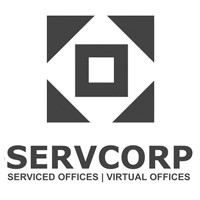Are you looking to set up your business at home as a freelancer? There are certain legal implications to take into account. We can explain everything!
Town planning rules
In theory, setting up a business in your home requires planning permission. However, in certain cases and by meeting strict conditions, it is possible to transform part of your home to set up your business, without needing to get planning permission:
Professions which can be carried out at home
Only some activities can be carried out at home without planning permission:
A) The liberal professions
There is no official definition of exactly what the liberal professions are. However, it is generally accepted that a self-employed person who is a liberal professional essentially provides services or goods that cannot be defined as a trade or craft.
Here are some characteristics of the liberal professions:
- They are always exercised in the interest of the client and the company.
- They are often governed by a code of ethics and specific legislation that establishes their professional status.
- The holder of a liberal profession assumes personal liability.
In general, the holder of a liberal profession does not carry out any commercial activity. By way of example, the following professions could be mentioned: lawyer, notary, architect, doctor, physiotherapist and psychologist.
B) Intellectual service company
This concept refers to professional activities known as "services", such as surveyor, accountant, auditor, tax consultant and design and consultancy firms.
C) Company producing material services and/or intangible goods
The "production of material services" based in the home can be understood as activities related to the material handling of goods: a removal company, a cleaning and maintenance company, plumbing, an inspection agency, etc.
The productive activities of intangible goods referred to here are activities such as audiovisual production, software production, recording studios, professional training, pre-press and call centres.
D) Private classes
Private classes may also be given at home. Since there are no specific criteria for home teaching, we recommend that you check with your local municipality to see if your situation is acceptable.
What conditions must be met?
You will not need to apply for planning permission if you meet the following three conditions:
- Setting up your business in the building does not violate the regulations of a subdivision permit, urban planning regulations or plans.
- The professional activity is incidental to the main residence of the person, director or one of the partners carrying out the activity.
- The floor area for the professional activity is:
- either less than 75 m²
- or more than 75 m² and less than or equal to 200 m²; in this case, the floor area used for the activity must be limited to 45% of the total floor area of the dwelling.
Example
Your home has a floor area of 250 m². You are a psychologist and would like to carry out consultations in your house. Your office uses less than 75 m²: no problem (and no permit). Would you like a bigger office? You can use up to 112.5 m² (250 m² x 45%) without requesting planning permission.
Your home has a floor area of 500 m²: without planning permission, you may not use more than 200 m² for your office.
Please note !
Please take note that if your business arrangements involve carrying out work that requires planning permission, such as demolishing a load-bearing wall or altering the façade, you will need to obtain a planning permit before initiating your project.
What if a planning permission is required?
Aside from these four categories of activity, or if you don't meet the conditions mentioned above, planning permission will be necessary. However, this can only be granted if your project meets the conditions set by the Regional Land Use Plan (Plan Régional d’Affectation du Sol, PRAS). In order to preserve existing housing, one of the requirements of the PRAS (0.12) includes significant limitations on the possibility of transforming a dwelling, or part of a dwelling, in order to replace it with another function (business, office, etc.). It is therefore a good idea to do your research, with your municipality's planning department or with our advisors, and find out about these limitations to determine whether it will be possible, in your case, to set up your professional project at home, or in a dwelling more generally.
Legal protection of the home
We would advise you to draw up a declaration of unseizability for your main residence (to be done in the presence of a notary). This ensures that the company's creditors cannot seize the entrepreneur's main residence. Having said that, you should note that banks tend to be more reluctant to grant credit for your business when there is such a declaration of unseizability.
To define what is exempt from seizure within the framework of this declaration, the floor area taken up by the professional part in relation to the total surface area of the building is taken into account:
- If it is less than 30%, the whole building will be declared unseizable;
- If it is equal to or greater than 30%, only the portion allocated to the principal residence will be declared unseizable. A basic deed should then be drawn up to clearly divide the property into private and professional areas.
What if I am a tenant?
The lease contract of a dwelling often states that "The Lessor does not authorise the Lessee to use all or part of the property leased for the exercise of a professional activity".
An entrepreneur who carries out his activity at home can legally deduct a part of the rent (according to the floor area of the property allocated to the exercise of the professional activity) as a professional expense. However, what is authorised here for the lessee-entrepreneur involves tax consequences for the lessor. Hence, the frequent stipulation of this type of clause in lease contracts.
TAX IMPLICATIONS FOR THE LESSOR
Below, we review the tax implications for the lessor.
1. PAYMENT OF REGISTRATION FEES
By inserting a clause partially authorising a professional activity, we would have a mixed lease (for use as housing with the authorisation of partial assignment to another activity). In this case, the registration of the lease is subject to registration fees for its entirety (which would have been different if two separate leases had been drawn up). For further details.
2. TAX ON REAL ESTATE INCOME
The general rule is that when a property is rented to a natural person, the lessor is taxed for real estate income on the indexed land register income plus 40%.
If the tenant uses (part of) the building for his professional activity, the tax base becomes the rent (minus a fixed amount of charges) actually received. This is generally (much) higher than the indexed land register income plus 40%.
In practice, we speak of the business use of property when the tenant deducts part or all of the rent as a business expense. Two cases are then possible:
- If the lease is not registered or is registered but does not specify the professional and private parts of the rent: the taxable real estate income is the total rent actually received (minus a lump sum for expenses);
- If the lease is registered and specifies the professional and the private part of the rent and the rental benefits: the taxable real estate income for the residential part is the indexed land register income increased by 40% and that for the professional part is the rent actually received (decreased by a fixed amount of charges).
The tax authorities will generally consider that the deduction of business expenses by the lessee leads to a corresponding taxation on the lessor - according to a principle of interconnection (a position which is however not always followed by judges).
MORE SPECIFICALLY:
- If your contract does not specify whether a part of the rented property may be used for your business, you can deduct a portion of your rent as a business expense. Note that this will have a tax impact on the owner, so you should inform him. If you don't, the Court may find you guilty of an abuse of rights and therefore order you to compensate the lessor for the resulting additional tax.
- If your contract prohibits you from doing so and you still deduct a portion of the rent as a business expense: in that case, the lease contract, even if it contains a clause prohibiting any professional activity, is not enforceable for the tax authorities. Consequently, the tax authorities are fully entitled, despite the existence of this clause, to tax the lessor on real estate income. In such case, the landlord may claim against you for not respecting the lease contract. You will probably be ordered to repay the excess tax as well as paying damages to the lessor.
- If your contract prohibits you from doing so and you do not deduct rent as a business expense, your landlord will not in principle be taxed. "In principle", because if the tax authorities decide to tax the lessor anyway, this will ultimately be left to the discretion of the court (according to some judges, the fact that the lessee does not deduct the rent is irrelevant).
WHAT IS THE ALTERNATIVE IF THE LEASE DOES NOT AUTHORISE THE EXERCISE OF A PROFESSIONAL ACTIVITY?
The first solution is to discuss it with your landlord. You can, for example, include a clause in the contract stipulating that you will be responsible for any possible taxation that may arise for the lessor and that is directly linked to the fact that you have registered your activity in said rented property.
Who can help me ?




